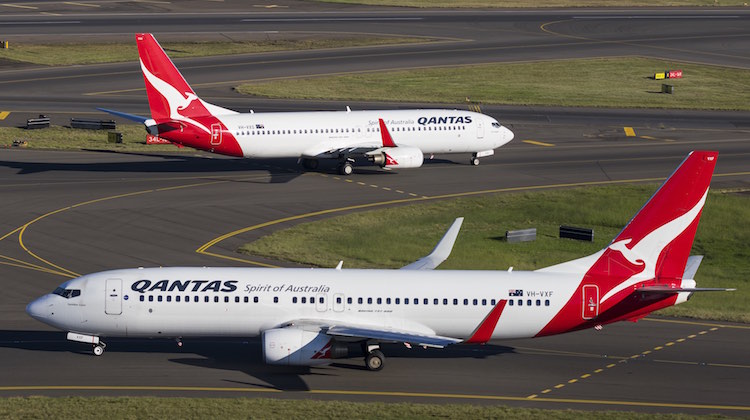
Capacity reductions in response to weaker domestic demand has helped Qantas restore revenue per available seat kilometre (RASK) growth in May and June.
The airline group reported RASK across both its Qantas and Jetstar domestic flying was up in May, having fallen in both March and April.
The improvement in RASK – an industry measure of demand and considered by the company as a key indicator of financial performance – was achieved amid a 4.2 per cent cut to combined Qantas and Jetstar domestic capacity in May.
“As a result of these targeted capacity reductions, Group Domestic RASK recovered from the negative trends of March and April to be positive in the month of May,” Qantas said in its May traffic statistics report released on Thursday.
“The positive Group Domestic RASK performance continued through the month of June.”
Qantas flagged those capacity reductions in its March traffic statement, when it said uncertainty related to the federal election and drop in consumer confidence had resulted in weaker-than-expected forward bookings.
The May report showed Qantas/QantasLink cut domestic capacity, measured by available seat kilometres (ASK), 5.1 per cent in the month, compared with the prior corresponding period, while passenger numbers rose by 1.6 per cent. As a result, load factors were up 3.6 percentage points to 74.5 per cent.
Although Jetstar posted a 0.4 per cent fall in passengers carried in May, the 2.3 per cent reduction in ASKs helped lift load factors 1.2 percentage points to 81.2 per cent.
On the international front, both Qantas and Jetstar reported higher passenger numbers amid increased capacity in May.
For Qantas, international capacity was up 8.4 per cent in May, as a result of new services launched so far in 2015/16, such as Brisbane-Tokyo (Narita), Sydney-San Francisco and extra frequencies to Hong Kong and Singapore, while the number of passengers carried rose 6.7 per cent. Load factors fell 1.8 percentage points to 74.8 per cent.
Meanwhile, Jetstar transitioned to an all Boeing 787-8 long-haul fleet in September 2015, with the 335-seat Dreamliner replacing the smaller Airbus A330-200, which had between 25 to 32 fewer seats depending on configuration. The 13.2 per cent boost to ASKs was matched by improved demand, leading to a 1.4 percentage point rise in load factors to 78.3 per cent.
However, Qantas said RASK across both Qantas and Jetstar international, as well as Singapore-based Jetstar Asia, was lower in May, compared with the prior corresponding period.
“Qantas Group Revenue per Available Seat Kilometre (RASK) declined in the month, with an increase in Group Domestic RASK offset by a decline in Group International RASK,” Qantas said.
Qantas shares were up four cents, or 1.44 per cent, at $2.81 in morning trade on the Australian Securities Exchange on Thursday. Meanwhile, Virgin Australia was up 0.2 of a cent at 20.2 cents.




